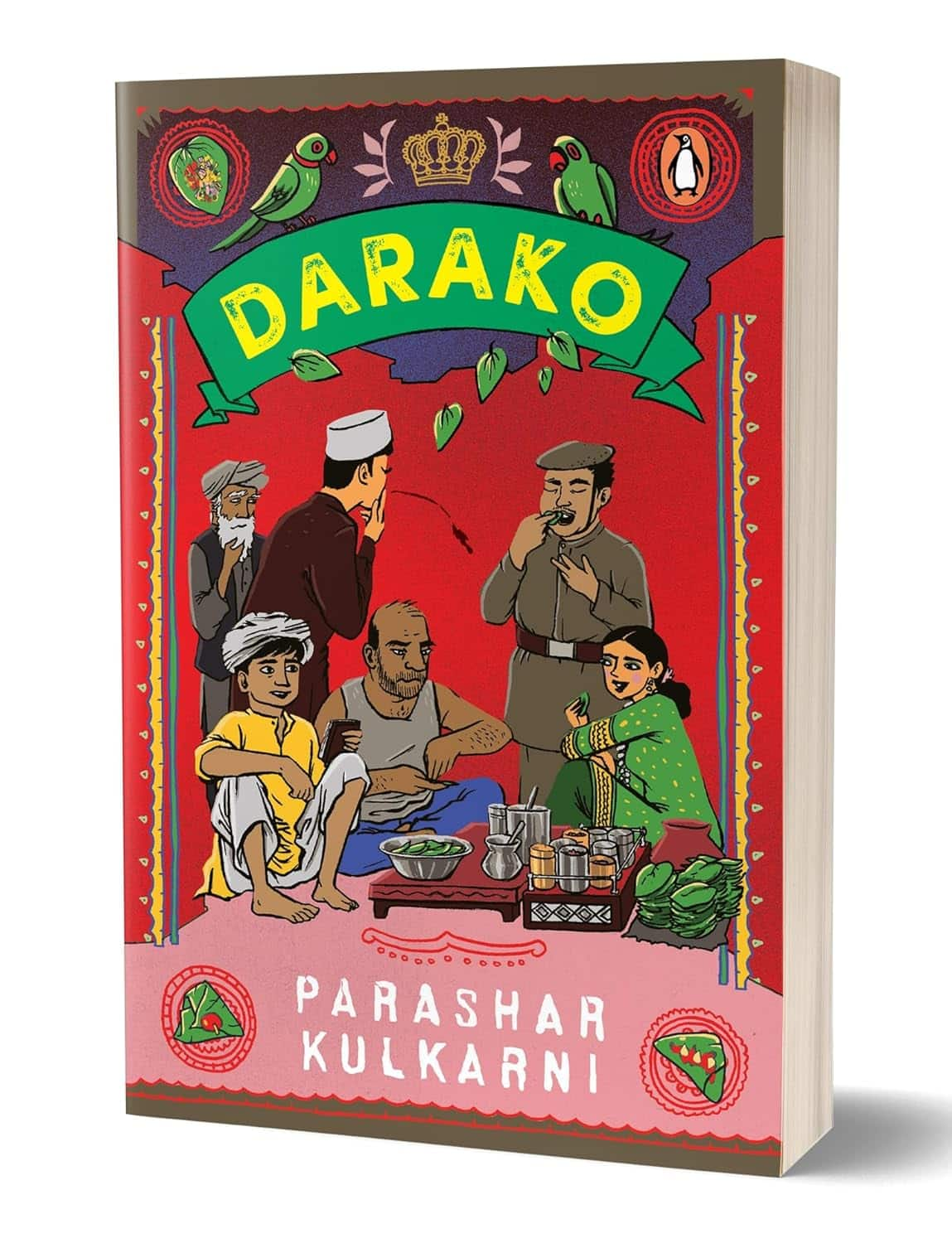



India's independence movement has been the throughline in many a historical novel. Rarely, though, has it been the backdrop for a satirical exploration into how cults get started and legends snowball. Mumbai-raised writer Parashar Kulkarni's 'Darako'—his second novel after 'Cow and Company'—does just that.
Here's a quick summary of the novel (contains spoilers): The British Chewing Gum Company that had a central role in 'Cow and Company' sets the ball rolling in 'Darako' as well. A general manager of the company sets up his man, Bandu, at a local paan shop run by a man called Bhola, to collect data on paan buyers' habits and preferences—ostensibly to help convert them to chewing gum. Extra judicious and possibly bored as he makes note of how Bhola's customers like their paan and how often, Bandu also starts to take down spitting distances as the customers send paan spittle towards the drain hole near the paan shop. A friendly competition to see who can spit farthest, becomes an obsession and a power play. Bandu has a vision about a tall man Dara Koh who can perform miracles with his paan spittle which seems to dance and catch the sunlight before disappearing down the drain. Bandu shares this vision of Dara Koh with those who collect at Bhola's shop to chew and spit paan. Soon, the legend of Dara Koh grows and the search for Dara Koh becomes all-consuming. Believers and seekers even produce a South Korean Koh Da-ra, who is promptly rejected. Daily gatherings of believers and naysayers debate the right course of action. Bandu and Bhola's growing wealth and influence inspire jealously in some quarters. Detractors gather, too, questioning why Bhola and Bandu get to make the rules and tell the congregation about Dara Koh. Bandu is shot during one such skirmish. That turns him into a martyr and sends the already-in-overdrive cult snowballing further. The search for Dara Koh continues, as factions break off. Some people stand to gain great wealth and great power from the churn.
What to expect when you read DarakoThe book accomplishes quite a bit in just over 150 pages, and does it in a way that feels funny, fast-paced and fresh.
The action is set in a city that seems to have been modelled on Mumbai. There's a narrator, Peter, who watches Bhola's paan shop, which is outside a police station, from a distance. General chitchat establishes the timeline—at the start of the novel, the people who gather around the paan shop and swirl through the area talk about the Tilak trials (Bal Gangadhar Tilak was tried in 1908 on charges of sedition). Slogans of "Simon, go back" are woven in midway. And by the end of the novel, there is Jawaharlal Nehru's "Tryst with destiny" speech.
Throughout the novel, the freedom struggle stays in the background while the phenomenal rise of a ridiculous cult of spitting and the spitting-god Dara Koh is foregrounded.
The fight for independence comes to the fore briefly in instances as a revolutionary visits Bhola's paan shop to know about the goings-on at the police station near the shop. The revolutionary and paan-shop owner trade coded messages and mysterious packages while Peter observes them unnoticed.
Indeed, Peter is so effective as a fly on the wall (and the foregrounded rise of the cult is so noisy) that readers should be forgiven for periodically forgetting that Peter is there at all. This hide and seek, foreground and background, code and cult keep you on your toes—packing both surprises and punch.
 Darako by Parashar Kulkarni; Penguin; 152 pages; Rs 299.A historical novel that feels contemporary
Darako by Parashar Kulkarni; Penguin; 152 pages; Rs 299.A historical novel that feels contemporaryIn the book, the cult of Dara Koh grows at an alarming rate. It feels timeless in terms of its trajectory, starting with something as innocuous and "normal" as chewing pan in this city modelled on Mumbai. The necessity of spitting the paan out acquires the dimensions of a fierce competition when Bandu starts making a note of who spits how far. The injection of Bandu's dream about Dara Koh catalyzes and changes this competition into a cult. His vision of Dara Koh gains mythic proportions from repetition and enhancement—it goes viral. Bhola, a paan-shop owner, and Bandu, a data man with the British Chewing Gum Company, the two nobodies quickly grow in stature.
The reader is swept up in this cult action. It all seems like an exercise in show-don't-tell of how cults or religions are started, who gets to wield influence, how long does it take for a cult to get a cult following, and why are some practices more cultish than other? All the while, the revolutionary activities simmer in the background. Peter remains all-seeing and unseen as he observes and narrates the events from the street, from under the bed and from the corners of rooms.
Despite the weighty subject matter, Kulkarni doesn't let events weigh the writing down. There's no time to dwell or judge or even think at times—and that's all just as well.
Discover the latest Business News, Sensex, and Nifty updates. Obtain Personal Finance insights, tax queries, and expert opinions on Moneycontrol or download the Moneycontrol App to stay updated!
Find the best of Al News in one place, specially curated for you every weekend.
Stay on top of the latest tech trends and biggest startup news.